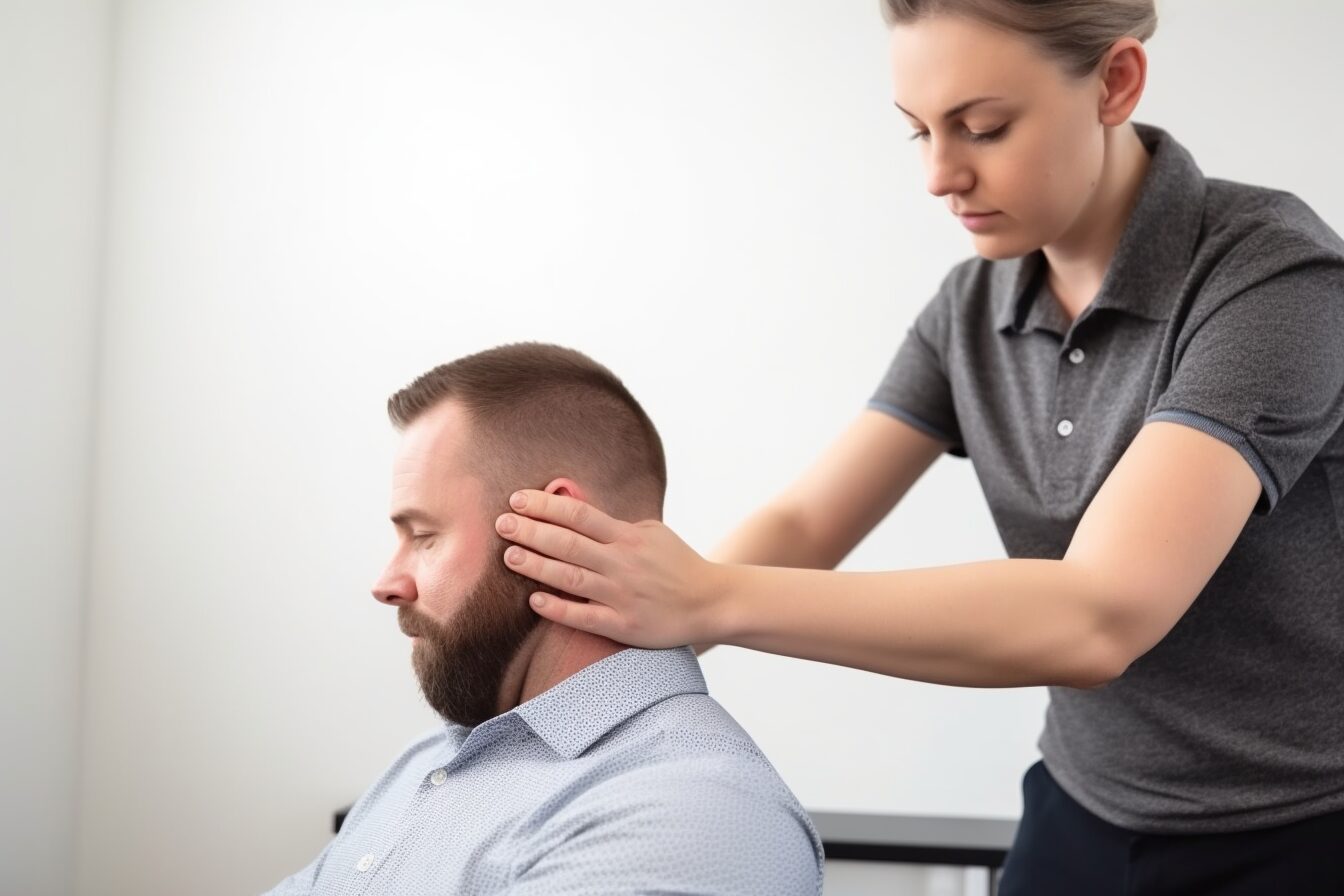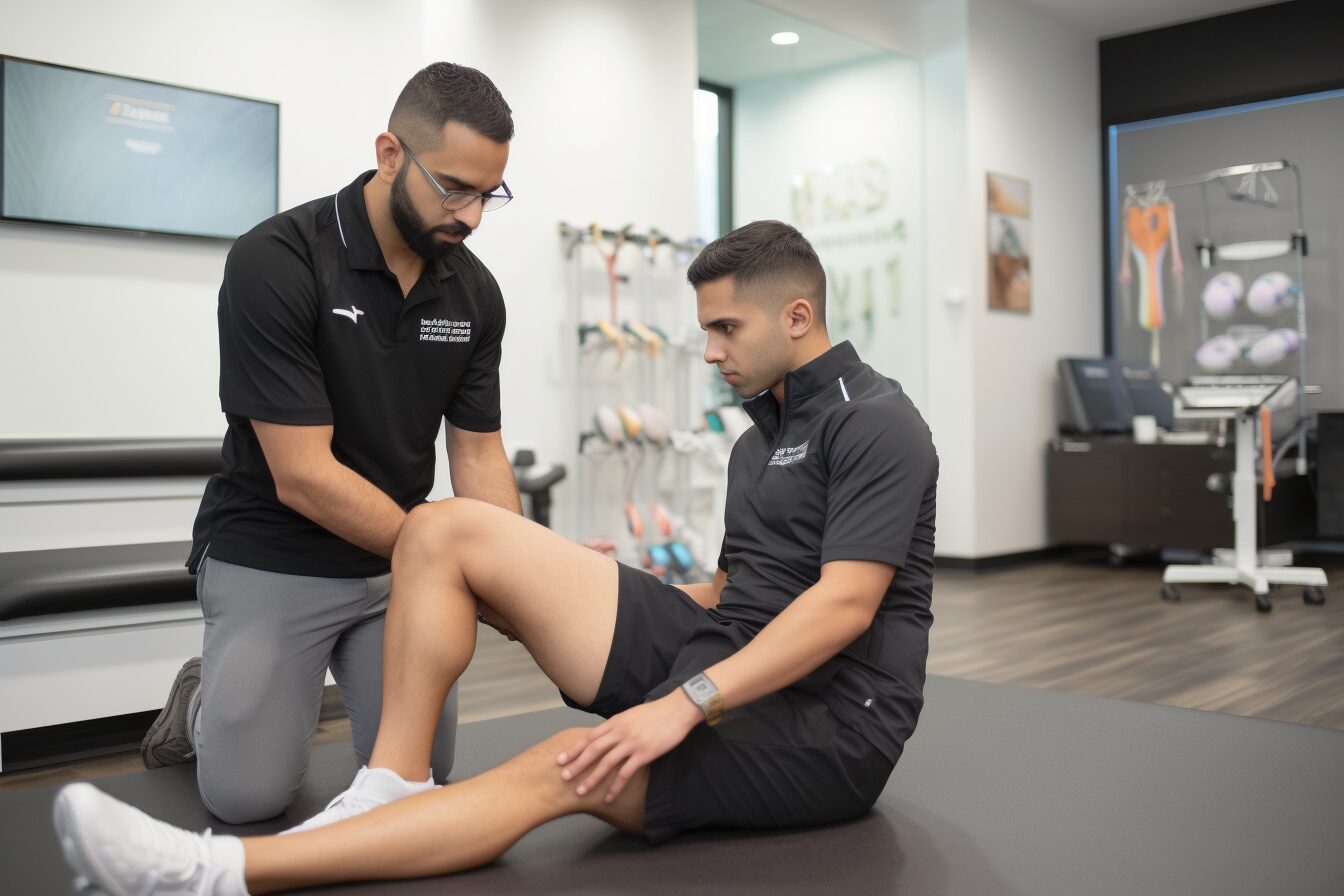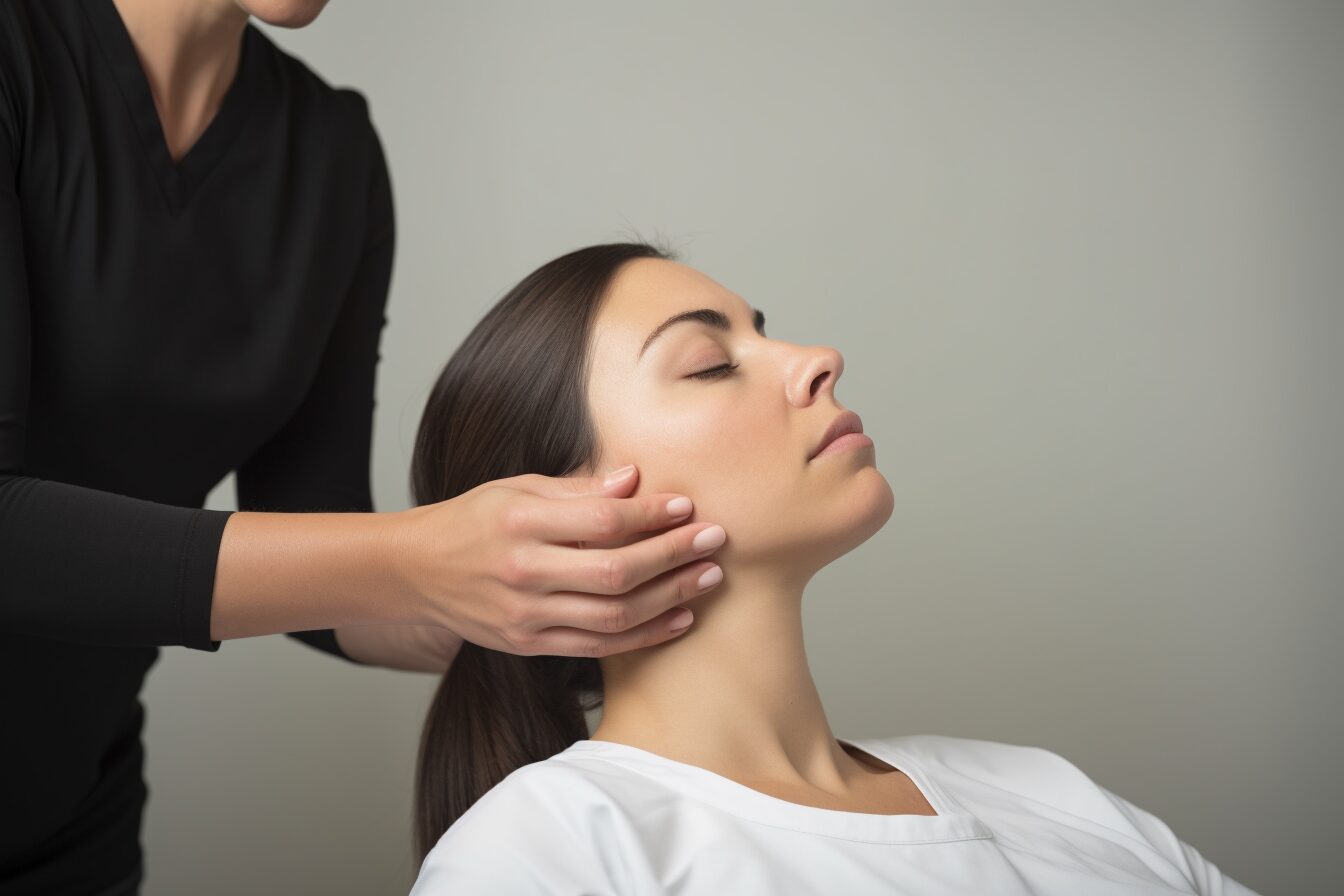Is Cracking Your Neck Bad for You? The Truth Revealed
Let's get straight to the point: is cracking your neck bad for you? The enigma of whether neck-cracking is detrimental has been stirring both worry and intrigue. We've all felt that irresistible urge to tilt our heads until we hear that satisfying pop. But behind this seemingly harmless habit lies a world of science and potential risks worth exploring.
Next up, we're plunging into the depths of neck-cracking's true essence, unraveling both its captivating mechanics and the euphoria it often brings. More importantly, we'll shed light on the dangers lurking beneath those quick twists—ranging from arterial dissection to chronic pain—and how these actions can affect everything from blood flow to nerve health.
We also promise practical advice on healthier alternatives for managing neck discomfort and maintaining overall spinal well-being. So stay tuned; understanding these insights might just change how you think about tilting your head for relief.
Table Of Contents:
Understanding the Mechanics of Neck Cracking

What Makes That Popping Sound?
Ever wonder why your neck emits a popping sound when you crack it? The answer lies in the joint capsule that surrounds each neck joint. Within these capsules, synovial fluid acts as a lubricant to aid smooth movement. When you stretch or manipulate your neck, the pressure within this fluid changes rapidly, forming gas bubbles that eventually burst and create that characteristic cracking noise. Engaging in this action triggers not just a peculiar sense of gratification but also unleashes endorphins, our body's natural analgesics.
This phenomenon isn't unique to just the cervical spine; it occurs in many joints across our bodies whenever we stretch or apply force to them in certain ways. However, when specifically focusing on neck cracking, understanding what happens beneath the surface can demystify this common habit.
The Role of Synovial Fluid in Joint Movement
Synovial fluid is like your body's own brand of high-quality oil designed for peak engine performance - except instead of an engine, we're talking about your joints. In terms of neck movements, this liquid gold ensures everything runs smoothly between bones at points called facet joints.
But here’s where things get interesting: besides facilitating slick moves without any hitches (literally), synovial fluid plays a starring role during those moments you decide to give your neck a good crack. As mentioned earlier, stretching these encapsulated spaces causes gases dissolved in synovial fluid to form bubbles due to decreased pressure—think soda bottle fizzing upon opening—and their subsequent 'pop' generates both sound and sensation alike.
In summary, whether driven by an instinctive need for relief from stiffness or merely out of habit—the act involves more than meets the ear (pun intended). It’s a complex ballet happening right inside those crucial pivot points supporting our heads; facilitated largely by something as unassuming as synovial fluid and tiny bursts of carbon dioxide.
Key Takeaway:
Cracking your neck releases gas bubbles in the synovial fluid, creating that pop and instant relief. This process involves more than just sound—it's a complex interaction within your joints, fueled by nature's lubricant for smooth movement.

Subscribe To Dr Mike's MVP Newsletter!
Exclusive content, interesting topics, real insights.

The Risks Associated with Neck Cracking
Cracking your neck might feel like a quick fix for stiffness or pain, but it's not without its dangers. Aggressively twisting or manipulating your neck can lead to a serious condition known as arterial dissection, where the blood vessels in the neck are torn apart. Linked to strokes, this harm is far from trivial and warrants serious attention.
Research on vertebral artery dissection shows that this type of injury can happen from something as seemingly harmless as cracking your neck. The sudden twisting motion may cause a tear in the inner lining of the vertebral artery, leading to a stroke if a blood clot forms and blocks blood flow to the brain.
Understanding Arterial Dissection
Beyond just feeling good, cracking your neck carries potential risks you need to know about. At the pinnacle of concerns, arterial dissection stands out for its severe consequences. When you apply forceful pressure or twist your cervical spine (the part of your spine within your neck), you risk tearing the layers of an artery wall in what's known as an arterial dissection.
This condition often leads directly to clotting inside these torn arteries—a major precursor for strokes. Incorrectly applied techniques can also pinch nerves and strain muscles around your cervical spine, adding more discomfort than relief.
In summary, while gently cracking those joints surrounding our facet joints might seem beneficial at first glance—it releases endorphins after all—the potential consequences far outweigh temporary comfort gains when done improperly or too frequently. From pinched nerves causing chronic pain through strained muscles making mobility harder right up until arterial tears threaten life itself; understanding these hazards makes clear why professional advice matters so much here.
Signs Your Neck Cracking Habit May Be Harmful

If you're someone who finds relief or satisfaction in hearing that loud pop when cracking your neck, it's important to understand the signals that might indicate this habit is doing more harm than good. While many of us experience neck stiffness and resort to gently cracking our necks to release pressure, there are certain red flags we should never ignore.
Loud Pop
A common belief is that a louder crack means a better release of tension. However, if you consistently hear an unusually loud pop during the process, it could be a sign of overstretched ligaments surrounding your cervical spine. This doesn't just relieve pain temporarily; it may also lead to chronic issues due to the strain on your joints called facet joints.
Feeling Pain When Cracking
Pain is not something you should feel when cracking your neck. If moving or manipulating your neck leads to discomfort or sharp pains, this indicates an underlying problem possibly with the blood vessels or nerves in that area. The sensation meant to bring relief shouldn't cause immediate pain or exacerbate existing conditions.
In fact, one significant danger linked directly with improper self-manipulation techniques includes arterial dissection which can occur from aggressive twisting and turning movements (source). Arterial dissection refers specifically to tears within the layers of artery walls leading potentially towards serious complications like stroke if not addressed promptly by medical professionals.
Crack It Again Within 10 Minutes?
An ability—or need—to re-crack parts of your body such as the neck shortly after initial adjustments suggests fluid buildup rather than proper alignment correction. Regularly feeling compelled for repeated manipulation could signify instability within those areas needing attention from experienced chiropractors rather than temporary fixes through self-cracking methods.
Key Takeaway:
Cracking your neck might feel good, but loud pops, pain, or the need to re-crack soon after are red flags. These signs could point to serious issues like overstretched ligaments or arterial dissection. It's better to seek help from a pro than risk long-term damage.
Professional Alternatives for Neck Care

If you've ever felt the urge to twist your neck until it pops, you're not alone. While this might offer temporary relief, seeking professional care is a safer bet for long-term health. Let's talk about why and how.
When to See a Chiropractor
Finding yourself cracking your neck more often than not? Perhaps it's the right moment to seek advice from a chiropractor or medical professional. These professionals are trained in diagnosing and treating issues related to the cervical spine without resorting to potentially harmful self-manipulation techniques.
Exploring chiropractic treatment unlocks a variety of specific remedies for neck issues, aiming not just to ease the discomfort but to tackle its root cause. Techniques such as spinal adjustments can help restore proper function and alignment of the neck joints, promoting healing and preventing future discomfort.
Besides chiropractors, physical therapists also play a crucial role in managing chronic or acute neck pain effectively. They provide exercises designed to strengthen muscles around the neck and improve posture, reducing undue pressure on cervical vertebrae over time.
The idea here isn't just about stopping those cracks but addressing what causes them in the first place—be it poor posture, stress-induced tension, or underlying medical conditions—and working towards sustainable solutions that prioritize safety alongside comfort. Research shows arterial dissection could occur from improper manipulation which highlights just one potential risk associated with DIY attempts at relief; thus underlining why professional guidance is indispensable when dealing with persistent or severe cases of discomfort surrounding ligaments or joints called facet joints within our necks.
In essence, while gently cracking your own neck occasionally may seem harmless (and indeed feels good due to endorphin release), if done incorrectly or too frequently it carries risks including nerve pinching and muscle strain - not something you want on top of existing woes. Seeking advice from experts ensures any intervention aligns closely with personal health needs ensuring both immediate ease AND lasting well-being—a win-win.
Key Takeaway:
Cracking your neck might feel good, but it's risky. For long-term health and to avoid harm, see a chiropractor or physical therapist. They'll fix the root cause safely, giving you relief without the risks of DIY cracking.
The Debate Around Chiropractic Care for Neck Issues

When it comes to managing chronic neck problems, chiropractic care often enters the conversation. But what's the real deal? Is cracking your neck bad or does a visit to a chiropractor actually offer relief?
To kick things off, we should dive into the reasons behind why individuals pursue this form of treatment. Many turn to chiropractors in hopes of finding relief from persistent neck pain or stiffness. Others might be curious if there are any benefits beyond temporary comfort.
Is There Any Benefit To Chiropractic Care?
The truth is, professional manipulation can do wonders for some individuals. When performed by an experienced practitioner, adjustments can release pressure from the joints called facet joints and improve blood flow throughout cervical spine areas that were previously constricted.
It's not merely the satisfaction of hearing cracks; it's fundamentally about addressing the root issues causing pain. Adjustments aim at restoring normal range motion while alleviating tension within surrounding ligaments and muscles around your neck joint.
Is it time to consider the benefits of chiropractic intervention for my well-being?
If you're experiencing chronic pain or unusual swelling after gently cracking your own neck regularly without significant improvement, then yes – seeking help from a healthcare provider like a physical therapist or qualified chiropractor could be beneficial.
Research shows, however, that aggressive self-manipulation poses potential risks such as arterial dissection which could lead to severe complications including stroke.
In conclusion: If done correctly under professional guidance with an understanding of one’s personal health history – spinal manipulative therapy may indeed provide not only symptomatic relief but also contribute towards long-term wellness goals for individuals suffering from certain types of cervical spine issues.
FAQs in Relation to Is Cracking Your Neck Bad for You
What happens if you crack your neck too much?
Cracking your neck too often can weaken joints, irritate nerves, and sometimes lead to artery damage. Play it safe.
How often should I crack my neck?
Ideally, don't make a habit of it. If you feel the need frequently, better check with a healthcare pro.
Is it bad to crack your neck by turning your head?
This method can strain muscles or pinch nerves if done wrong. There are safer ways to relieve that tension.
Are there benefits to cracking your neck?
A quick relief feeling comes from endorphin release but remember, the risks might outweigh this brief comfort zone moment.
Conclusion
So, is cracking your neck bad for you? The answer isn't simple. Having traversed quite a bit of territory, we're now positioned to offer you a more defined understanding.
Before jumping in, make sure to fully understand the scientific background. Remember, that popping sound comes from gas bubbles in your synovial fluid - it's normal but not always harmless.
Consider the risks seriously. From arterial dissection to chronic pain, the dangers are real and potentially severe.
Listen to your body. Pain or unusual sounds mean stop and seek professional help instead of self-manipulating those delicate structures in your neck.
Maintain healthy practices; gentle stretches can keep discomfort at bay without risking harm.
In all this, remember: Your health is paramount. When in doubt, let professionals guide you towards safer alternatives for relief and well-being.
18600 Main St STE 110, Huntington Beach, CA 92648

Subscribe To Dr Mike's MVP Newsletter.
Get In Touch
(714) 794-2171
Office Hours
Monday-Thursday:
7:00 am - 11:00 am, 2:00 pm - 6:00 pm
Friday: Closed
Saturday: By Appointment Only
Sunday: Closed

(714) 794-2171
Subscribe To Dr Mike's MVP Newsletter.
Office Hours
Monday-Thursday:
7:00 am - 11:00 am, 2:00 pm - 6:00 pm
Friday: Closed
Saturday: By Appointment Only
Sunday: Closed
18600 Main St STE 110, Huntington Beach, CA 92648
Huntington Beach Chiropractic | Copyright ©2026 | Website by iTech Valet
